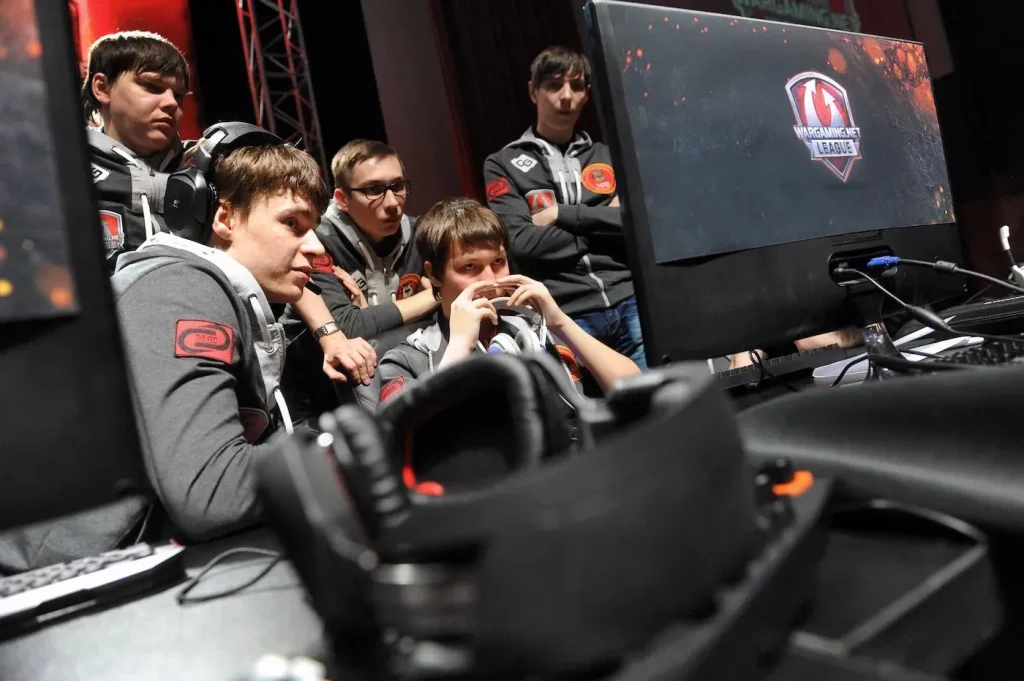The takeover of Lesta Studios by the Russian government marks a significant development within the gaming industry, particularly following the controversial actions of Wargaming Russia. On April 17, 2025, President Putin’s administration asserted control over the Moscow-based studio, alleging ties to support for Ukraine amid the ongoing conflict, which has emerged as one of the bloodiest wars in Europe in nearly a century. This move has raised eyebrows, especially since Wargaming had already distanced itself from the region, selling its business interests to local management while disavowing any remaining assets in Russia and Belarus. Court documents reveal that the action taken against Lesta Studios ties directly to accusations of extremist activities allegedly linked to its leadership, further complicating the firm’s position. As details continue to unfold, this takeover could signal a broader trend of increasing Russian government control over independent companies within the gaming sector, reshaping the landscape of gaming industry news and its global implications.
In a surprising turn of events, the recent seizure of Lesta Studios by the Kremlin illustrates a stark shift in the relationship between the gaming sector and state authority in Russia. This takeover has drawn attention not only for its implications within the local gaming community but also as a reflection of the increasing oversight by the Putin administration. Following the accusations leveled against Wargaming Russia for alleged support of Ukrainian efforts, the Kremlin’s actions signal a tightening grip over artistic and commercial entities that operate within its jurisdiction. The ramifications of this move extend beyond gaming, as it intersects with wider geopolitical tensions and the ongoing Ukraine conflict. As the situation evolves, observers are keenly watching how such government control might influence future developments in the gaming landscape.
Overview of the Lesta Studios Takeover
On April 17, 2025, the Russian government executed a significant takeover of Lesta Studios, a Moscow-based gaming company once affiliated with Wargaming Russia. This takeover came under the pretext that Wargaming’s former leadership had shown support for Ukraine following the outbreak of the Ukraine conflict in 2022. In a move that echoes the Putin administration’s increasingly authoritarian stance on companies that do not align with state interests, the government issued court orders aiming to dismantle the association behind Lesta Studios and transfer its ownership to state control. The ramifications of this shift are critical not only for Lesta Studios but the entire gaming industry in Russia as it moves under tighter government regulation and oversight.
In the wake of the Lesta Studios takeover, various reports highlighted the chilling effect this could have on the broader gaming landscape in Russia. With the state now controlling significant entities in the sector, there is growing concern over the pace at which Russian government control could stifle creativity and independent development. The implications extend beyond corporate boundaries, suggesting a more profound impact on freedom of expression within the gaming community. This sequence of events is just one example of how the ongoing Ukraine conflict reshapes various sectors in Russia, painting a more complicated picture for multinational companies and local businesses alike.
The Implications for the Gaming Industry News
The implications of the Lesta Studios takeover stretch far into the gaming industry, prompting major shifts in how businesses will need to navigate the political landscape in Russia. As the Russian government continues to assert its authority over formerly independent studios, industry insiders are bracing for an environment where state ideology may increasingly seep into game development processes. This move casts a long shadow over potential future collaborations or ventures for international companies wishing to enter or reinstate themselves in the Russian gaming market. Much of this concern can be traced back to the actions taken against Wargaming and its strategic exit from the market, which serves as a cautionary tale for others.
Furthermore, the evolving situation creates a platform for discussion regarding ethical business practices and corporate responsibility in the context of government actions. The ordeal that Lesta Studios is currently facing may serve to rally support for independent gaming studios that may be struggling under similar pressures from authoritarian regimes. As gaming enthusiasts and industry analysts alike keep a watchful eye on developments, the need for a unified voice against oppressive government control in the creative sectors becomes ever clearer.
Legal Challenges and Corporate Responses to Government Control
In response to the takeover by the Russian government, Lesta Studios has lodged a complaint to contest the legality of the government’s actions, reflecting a growing resistance among businesses against state overreach. This legal battle highlights the increasing stakes involved in Russia’s gaming industry, where the line between corporate interests and government mandate is becoming increasingly blurred. The case emphasizes a narrative of corporate autonomy in an environment that is becoming stricter due to the Putin administration’s policies. For many observers, this ongoing struggle represents a crucial test of the resilience of private enterprises under authoritarian regimes.
Legal scholars and industry advocates are watching closely as developments unfold, recognizing that how Lesta Studios navigates this crisis could set precedents for future corporate governance in Russia. The case could potentially usher in new discussions around the rights of studios and their ability to operate free from external pressures, a concept that resonates with global standards of business ethics and operation. As Lesta Studios’ representatives prepare to challenge what they view as an unjust action, many are hopeful this may inspire similar responses from other affected entities.
Impact on Employees and Creatives in the Gaming Sector
An often overlooked aspect of the Lesta Studios takeover is its profound impact on the employees and creatives working within the gaming sector. With the Russian government seizing control, there is growing anxiety among staff members regarding job security, creative freedom, and the corporate culture that may emerge under state management. Many professionals within the industry have expressed concerns that this development could stifle innovation and lead to a homogenization of game narratives, potentially limiting the diversity that has characterized the gaming sector in Russia.
Moreover, those employees who previously expressed views that differed from the state’s ideological stance, such as Wargaming’s former creator director Sergey Burkatovskiy, may now feel even more constrained in their expressions and creative contributions. The environment bred by the recent events suggests a chilling shift, where artistic expression may be sacrificed for compliance with government directives. As the gaming industry grapples with these complex dynamics, the question remains: how will the creative community respond and adapt to an increasingly restrictive environment?
Response from Wargaming and Industry Reactions
Following the takeover of Lesta Studios, Wargaming issued a statement to clarify its position and distance itself from the actions of the Russian government. By emphasizing its strategic exit from the Russian and Belarusian markets, Wargaming aims to reassure international stakeholders of its commitment to ethical business practices and to signal that it does not endorse the actions taken against Lesta Studios. The company’s proactive messaging reflects an understanding of the delicate balance required to operate within an increasingly politicized market, which formalizes the lines between corporate responsibility and personal accountability.
As industry reactions unfold, it is worth noting how the broader gaming community has responded to the takeover. Advocacy groups and industry coalitions have begun mobilizing to support Lesta Studios and similar entities facing undue government influence. This call for solidarity represents a collective recognition within the gaming community of the potential consequences of state control over creative spaces, culminating in a robust discourse on how to navigate ethical dilemmas in an industry that values freedom and creativity.
Cultural Ramifications in the Context of the Ukraine Conflict
The takeover of Lesta Studios not only affects the gaming industry but also encapsulates broader cultural ramifications stemming from the ongoing Ukraine conflict. As Russia intensifies its grip on artistic sectors, the implications extend beyond mere business transactions; they delve into the realm of narrative control over the stories that can be told through games. The potential censorship of content regarding the Ukraine conflict can lead to a form of propaganda, further complicating the relationship between the gaming industry and the public’s perception of the conflict. The role of gaming as a medium for storytelling takes on new urgency when examined in this context.
The cultural landscapes in both Russia and Ukraine are shifting dramatically, and the gaming industry stands at the forefront of this transformation. Games have the capacity to shape narratives, influence opinions, and create dialogues about geopolitical issues. The actions taken by the Russian government against Lesta Studios may assist in drawing attention to the role that creativity plays in conflict, urging a deeper examination of how digital narratives might reflect or challenge real-life events. As companies like Wargaming and Lesta navigate these turbulent waters, the importance of maintaining artistic integrity will likely resonate more than ever among creators and consumers alike.
Future of Game Development in Russia Under Government Oversight
The future of game development in Russia appears uncertain, especially following significant governmental control exemplified by the Lesta Studios takeover. Analysts are concerned that increased government oversight will lead to restrictive practices that may not only hinder creativity but also drive talent and innovation out of the country. With major international entities reconsidering their ties to the Russian market due to regulatory unpredictability, the landscape for budding game developers remains complicated. Many creators fear that their visions may be at odds with government expectations, leading to a stifling environment for expression.
As the situation continues to evolve, industry veterans are calling for a stronger coalition to defend creative freedoms and advocate for inclusive policies within the gaming sector. It remains to be seen how influential voices within the community will respond to the push for state compliance, but there is consensus that a grassroots movement may be necessary to counteract oppressive government influences. The hope is that collaboration among developers, gamers, and advocates can foster an ecosystem that prioritizes creative autonomy and reaffirms the importance of diverse expressions in the ever-changing landscape of game development.
Legal Framework and Government’s Justification
An essential element to understand in the context of the Lesta Studios takeover is the legal framework that the Russian government is utilizing to justify its actions. Court documents indicate a formal claim by the Deputy Prosecutor General of Russia, which has been positioned as necessary for national security. The government’s assertion that associations with Wargaming and its affiliates amount to extremist activities adds a layer of complexity to the situation, elevating the events from a corporate dispute to a matter of national concern.
Critics of the government’s approach argue that such justifications often mask political motivations and serve to silence dissent. By invoking national security as a rationale for the takeover, the administration seeks not only to control the studio itself but also to send a powerful message to others in the industry who might consider taking a stand against state policy. As discussions around the implications of this legal framework continue, it raises significant questions about the future of corporate governance and the rule of law in Russia.
Reactions from Gamers and the Gaming Community
The gaming community has been vocal in its reactions to the takeover of Lesta Studios, reflecting a spectrum of sentiments ranging from disappointment to outrage. Many gamers have taken to social media platforms to express their concerns regarding the potential impact of government control on their favorite titles and the creative freedom of developers. The engaging discussions showcase the unique position the gaming community holds in addressing political issues while advocating for the rights of developers and resisting authoritarian influences systematically impacting creative industries.
In addition to online discussions, some members of the gaming community have initiated petitions and campaigns aimed at raising awareness about the takeover and expressing solidarity with affected studios. This level of activism not only reinforces the importance of peer support but also signals a broader movement towards holding companies accountable for their actions. As gamers continue to navigate this politically charged environment, the relationship between the creative community and its audience may evolve, leading to heightened expectations for ethical practices within the gaming industry.
The Global Perspective on Russia’s Government Control Over Media
The Lesta Studios takeover exemplifies a larger pattern that many global observers have noted regarding the Russian government’s increasing control over media and creative industries. The situation raises critical questions about how authoritarian regimes can suppress dissent by acquiring and controlling narratives that are vital not only to the freedom of expression but also to international perceptions of their actions. As similar tactics have been observed in other nations, the necessity of international solidarity to support independent creatives becomes even more crucial.
International responses to the takeover are indicative of a larger discourse concerning artistic freedom across borders. Many global gaming companies are reevaluating their relationships with Russian firms, emphasizing a commitment to uphold ethical standards that prioritize freedom of expression. This affects not only potential collaborations but also future market viability as companies weigh their options in light of governmental overreach. As the debate surrounding the Lesta Studios situation unfolds, it serves as a potent reminder of the resilience of artists and creators who utilize their platforms to challenge oppressive narratives.
Frequently Asked Questions
What details surround the Lesta Studios takeover by the Russian government?
On April 17, 2025, the Russian government reportedly assumed control of Lesta Studios, a former Wargaming property. The Putin administration justified this takeover by alleging that Wargaming, the previous owner, had supported Ukraine during the ongoing conflict initiated by Russia’s invasion in 2022.
How did the takeover of Lesta Studios relate to Wargaming’s actions regarding the Ukraine conflict?
The takeover of Lesta Studios is connected to Wargaming’s exit from the Russian market in 2022, which they claimed was a strategic decision amidst the Ukraine conflict. The Russian prosecutor general’s office suggested that Wargaming’s fundraising efforts for Ukraine contributed to their claim against the studio.
What implications does the Lesta Studios takeover have for the gaming industry?
The takeover of Lesta Studios by the Russian government is a significant event in gaming industry news, indicating increasing government control over private enterprises. This incident could prompt other companies to reconsider their operations in Russia amid international conflicts and political tensions.
How has Wargaming responded to the takeover of Lesta Studios?
In response to the Lesta Studios takeover, Wargaming clarified that they had exited the Russian and Belarusian markets three years prior and had sold their business to local management devoid of claims. They emphasize having no business interests in Russia or Belarus post-takeover.
What legal actions are being taken regarding the Lesta Studios takeover?
Lesta Studios has filed a complaint against the Russian government’s takeover, contesting the legality of the actions justified by accusations of extremist associations against the studio’s former leadership.
What is the significance of the Lesta Studios takeover within the broader context of the Ukraine conflict?
The Lesta Studios takeover reflects the broader repercussions of the Ukraine conflict, showcasing how geopolitical tensions can affect business operations in the gaming industry and intensifying scrutiny of organizations like Wargaming amidst allegations of support for Ukraine.
Who are the key figures involved in the Lesta Studios takeover and the allegations from the Russian government?
The key figures in the Lesta Studios takeover include M.A. Khatazhaev, the founder of Lesta Studios, and V.V. Kisly, the owner of Wargaming. The Russian government has accused them of being part of an association engaging in extremist activities, complicating the situation further.
What actions led to the Russian government claiming control of Lesta Studios?
The Russian government’s claim over Lesta Studios was prompted by accusations that Wargaming supported Ukraine during the 2022 invasion. Furthermore, they pointed to the studio’s fundraising for Ukraine as a reason for the assets’ seizure.
| Key Point | Details |
|---|---|
| Government Control | The Russian government took control of Lesta Studios on April 17, 2025. |
| Reason for Seizure | The government claims that Wargaming, the former owner, supported Ukraine during the ongoing conflict. |
| Legal Proceedings | Court documents indicate a push to prohibit activities of the association involving Wargaming’s owner and Lesta’s founder. |
| Wargaming’s Position | Wargaming clarified it exited the Russian and Belarusian markets in 2022, selling its interests at zero cost. |
| Allegations of Extremism | Russian authorities claim both Khatazhaev and Kisly are involved in extremist activities. |
| Response from Lesta Studios | Lesta Studios has filed a complaint against the government’s actions. |
| Background on Wargaming | Wargaming, known for World of Tanks, had previously terminated a director for his support of the invasion. |
Summary
The Lesta Studios takeover marks a significant escalation in the ongoing conflict between Russia and Ukraine, highlighting the tensions in the gaming industry influenced by geopolitical events. Following the claim by President Putin’s government, the implications for both Lesta Studios and its former parent company Wargaming are profound, raising questions about the future of business operations within Russia amidst escalating accusations of extremism. As Lesta Studios contests this takeover, the situation remains fluid, reflecting the broader uncertainties in war-affected sectors and the potential impact on game developers and communities worldwide.



